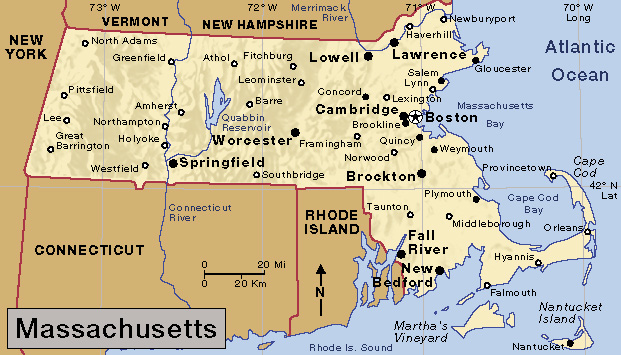Fall River (pop. 94,000) is an industrial city in southeastern Massachusetts. It lies in a hilly area where the Taunton River flows into Mount Hope Bay. The Quequechan River flows through the city. The city’s name comes from Falling Water, the translation of Quequechan, an Indian name.

From the 1870’s until the 1920’s, Fall River was the largest center in the United States for the manufacture of cotton textiles. The number of mills declined sharply after 1929. But garment making and the finishing of textile fabrics are still important industries in Fall River. Other industries include the manufacture of bakery products, commercial dryers, lighting fixtures, plastics, and rubber gloves.
Many granite buildings stand along the Quequechan River in the city. Formerly cotton mills, they now house various industries. The World War II (1939-1945) battleship USS Massachusetts, docked in Battleship Cove in Mount Hope Bay, is a major tourist attraction.
Settlers from Plymouth Colony purchased part of what is now Fall River from the Wampanoag Indians in 1659. In the Battle of Fall River, fought in 1778 during the Revolutionary War in America, the townspeople put up a strong defense against a British force. The settlement was incorporated as a town in 1803. From 1804 to 1834, the town was called Troy. The name was changed to Fall River in 1834. It was the site of the famous Lizzie Borden murder trial in 1893 (see Borden, Lizzie). Fall River has a mayor-council form of government.
